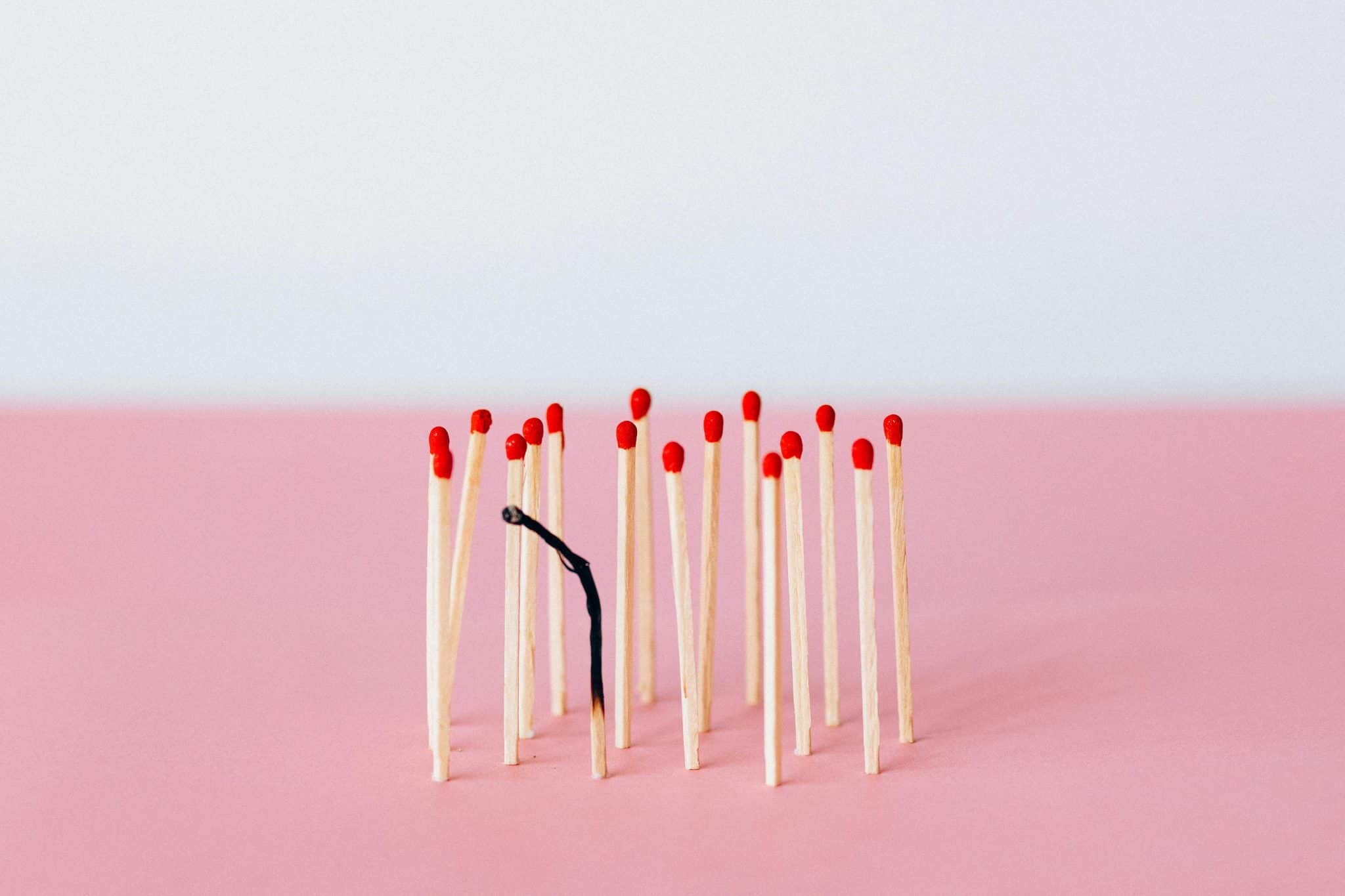Freedom 2023 Reading List

Our pick of books that will hold your attention this year
At Freedom, we have many writers in our community, which makes for plenty of reading for us! In fact, it’s one of my favorite things about my job – getting to discover the amazing work of people who use Freedom, and of people who share our mission of using technology in ways that can help humanity do great things! Of course, being a writer, I consider reading a fundamental part of my work… if I didn’t read, I’d have nothing to write about! Not to mention that the writing of others serves as an endless inspiration to those who put pen to paper for a living. And if you don’t believe me, believe bestselling author Stephen King:
“If you want to be a writer, you must do two things above all others: read a lot and write a lot..reading is the creative center of a writer’s life…you cannot hope to sweep someone else away by the force of your writing until it has been done to you.”
Stephen King in On Writing: A Memoir of The Craft, 2000
Whether you’re a writer looking for inspiration, an avid reader looking for recommendations, or you have resolved to read more this year, we bring you 12 of our favorite books from the past year, selected by podcast producer Georgie and myself. We’re grateful to all of the amazing writers and thinkers who contributed to our podcast and blog last year, and we are excited to discover many more great reads this year, too!
Attention Span: Finding Focus for a Fulfilling Life – Gloria Mark
We spend an average of just 47 seconds on any screen before shifting our attention. It takes 25 minutes to bring our attention back to a task after an interruption. And we interrupt ourselves more than we’re interrupted by others.
In Attention Span, psychologist Gloria Mark reveals these and more surprising results from her decades of research into how technology affects our attention. She shows how much of what we think we know is wrong, including insights such as:
Why multitasking hurts rather than helps productivity
How social media and modern entertainment amplify our short attention spans
What drains our mental resources and how to refuel them
The four types of attention that we experience every day and how to recognize them
While the concept of “flow” has previously been considered the ideal state of focus, Dr. Mark offers a new framework to help explain how our brains function in the digital world: kinetic attention. This book reveals how we can take control, not only to find more success in our careers, but also to find health and wellness in our everyday lives.
Stay tuned for our upcoming episode of Freedom Matters featuring Gloria.
Acceptance – Emi Nietfeld
As a homeless teenager writing college essays in her rusty Toyota Corolla, Emi Nietfeld was convinced that the Ivy League was the only escape from her dysfunctional childhood. But upward mobility required crafting the perfect resilience narrative. She had to prove that she was an “overcomer,” made stronger by all that she had endured.
The truth was more complicated. Emi’s mom was a charming hoarder who had her put on antipsychotics but believed in her daughter’s brilliance—unlike the Minnesotan foster family who banned her “pornographic” art history flashcards (of Michelangelo’s David). Emi’s other parent vanished shortly after coming out as trans, a situation few understood in the mid-2000s. Her own past was filled with secrets: mental health struggles, Adderall addiction, and the unbecoming desperation of a teenager fending for herself. And though Emi would go on to graduate from Harvard and become a software engineer at Google, she found that success didn’t necessarily mean safety.
Both a chronicle of the American Dream and an indictment of it, this searing debut exposes the price of trading a troubled past for the promise of a bright future. Told with a ribbon of dark humor, Acceptance challenges our ideas of what it means to overcome—and find contentment on your own terms.
Joyful – Ingrid Fettell Lee
Is there a reason that people — regardless of gender, age, culture, or ethnicity — are mesmerized by babies, and can’t help but smile when they see a burst of confetti or a cluster of colorful balloons?
We are often taught that our external environment has little or no impact on our inner joy. Increasingly, experts urge us to find balance and calm by looking inward — through mindfulness or meditation — and muting the outside world. But what if the natural vibrancy of our surroundings is actually our most renewable and easily accessible joy?
In JOYFUL, designer Ingrid Fetell Lee explores how the mundane spaces and objects we interact with every day have surprising and powerful effects on our mood. Drawing on cutting-edge neuroscience and psychology, she explains why one place makes us feel anxious or competitive, while another fosters delight and sharing — and, most importantly, she reveals how we can harness the power of our surroundings to live fuller, healthier, and truly joyful lives.
Tune into our podcast episode with Ingrid below:
Freedom to Think – Susie Alegre
Without a moment’s pause, we share our most intimate thoughts with trillion-dollar tech companies. Their algorithms categorize us and jump to troubling conclusions about who we are. They also shape our everyday thoughts, choices and actions – from who we date to whether we vote. But this is just the latest front in an age-old struggle.
Part history and part manifesto, Freedom to Think explores how the powerful have always sought to influence how we think and what we buy. Connecting the dots from Galileo to Alexa, human rights lawyer Susie Alegre charts the history and fragility of our most important human right: freedom of thought.
Filled with shocking case-studies across politics, criminal justice, and everyday life, this ground-breaking book shows how our mental freedom is under threat like never before. Bold and radical, Alegre argues that only by recasting our human rights for the digital age can we safeguard our future.
Read our interview with Susie and hear her on the podcast below:
Shorter: Work Better, Smarter & Less – Alex Pang
You and your company can work less, be more productive, and make time for what’s really important.
The idea of success embraced by the global economy means being always-on, never missing an opportunity, and outworking your peers. But working ever-longer hours isn’t sustainable for companies or individuals. Fatigue-induced mistakes, whether in the operating room or factory line, cost companies billions, and overwork alienates and burns out valuable employees.
But what if there is another way? Shorter tells the story of entrepreneurs and leaders all over the world who have discovered how to shrink the workweek without cutting salaries or sacrificing productivity or revenues. They show that by reducing distractions, eliminating inefficiencies, and creating time for high-quality focus and collaboration, 4-day workweeks can boost recruitment and retention, make leaders more thoughtful and companies more sustainable, and improve work-life balance. Using design thinking, a business and product development process pioneered in Silicon Valley, futurist and consultant Alex Pang creates a step-by-step guide for readers to redesign their workdays.
Read our interview with Alex and hear him on the podcast below:
SOLO – How To Work Alone (And Not Lose Your Mind) – Rebecca Seal
Whether by choice or circumstance, as a freelancer or a company employee working from home, more of us are becoming solo workers than ever before. But once you’ve made the leap, how to do you actually work well in isolation? And how can you thrive while working alone?
Picking up where the freelancer bibles stop, Solo addresses what we gain but also miss when we shift from the structure of an office environment to the solitary confines of our homes or studios. Blending the latest research in psychology, economics and social science with guided self-examination and more than ten years of freelance experience, Rebecca Seal shows you how to stay resilient, productive and focused in a company of one.
Practical and inspiring, she also explores the idea of meaningful work and helps you define your own success.
Tune into our podcast episode featuring Rebecca below:
Four Thousand Weeks – Oliver Burkeman
What if you stopped trying to do everything so that you could finally get round to what counts?
We’re obsessed with our lengthening to-do lists, our overfilled inboxes, the struggle against distraction, and the sense that our attention spans are shriveling. Still, we rarely make the connection between our daily struggles with time and the ultimate time management problem: the question of how best to use our ridiculously brief time on the planet, which amounts on average to about four thousand weeks.
Four Thousand Weeks is an uplifting, engrossing, and deeply realistic exploration of the challenge. Rejecting the futile modern obsession with ‘getting everything done,’ it introduces readers to tools for constructing a meaningful life by embracing rather than denying their limitations. And it shows how the unhelpful ways we’ve come to think about time aren’t inescapable, unchanging truths, but choices we’ve made, as individuals and as a society. Its many revelations will transform the reader’s worldview.
Drawing on the insights of both ancient and contemporary philosophers, psychologists, and spiritual teachers, Oliver Burkeman sets out to realign our relationship with time – and in doing so, to liberate us from its tyranny.
Tune into our podcast featuring Oliver below:
The Shallows: What The Internet is Doing to Our Brains – Nicholas Carr
Is Google making us stupid? When Nicholas Carr posed that question in a celebrated Atlantic essay, he tapped into a well of anxiety about how the Internet is changing us. He also crystallized one of the most important debates of our time: As we enjoy the internet’s bounties, are we sacrificing our ability to read and think deeply?
With The Shallows, a finalist for the 2011 Pulitzer Prize in nonfiction and a New York Times bestseller, Carr expands his argument into the most compelling exploration of the net’s intellectual and cultural consequences yet published. The Shallows is, writes Slate, “a Silent Spring for the literary mind.”
An expanded, tenth-anniversary edition of The Shallows was published in 2020. It includes an extensive new afterword that examines how smartphones and social media are influencing our thoughts and emotions.
Hear Nicholas on the Freedom Matters podcast below:
Slow Media: Why Slow is Satisfying, Sustainable, and Smart – Jennifer Rauch
Today we recognize that we have a different relationship to media technology–and to information more broadly–than we had even five years ago. We are connected to the news media, to our jobs, and to each other, 24 hours a day. But many people have found their mediated lives to be too fast, too digital, too disposable, and too distracted. This group–which includes many technologists and young people–believes that current practices of digital media production and consumption are unsustainable, and works to promote alternate ways of living.
Until recently, sustainable media practices have been mostly overlooked or thought of as a counterculture. But, as Jennifer Rauch argues in this book, the concept of sustainable media has taken hold and continues to gain momentum. Slow media is not merely a lifestyle choice, she argues, but has potentially great implications for our communities and for the natural world. In eight chapters, Rauch offers a model of sustainable media that is slow, green, and mindful. She examines the principles of the Slow Food movement–humanism, localism, simplicity, self-reliance, and fairness–and applies them to the use and production of media. Challenging the perception that digital media is necessarily eco-friendly, she examines green media, which offers an alternative to a current commodities system that produces electronic waste and promotes the consumption of nonrenewable resources. Lastly, she draws attention to mindfulness in media practice– “mindful emailing” or “contemplative computing”, for example – arguing that media has significant impacts on human health and psychological wellbeing.
Slow Media will ultimately help readers understand the complex and surprising relationships between everyday media choices, human well-being, and the natural world. It has the potential to transform the way we produce and use media by nurturing a media ecosystem that is more satisfying for people, and more sustainable for the planet.
Hysterical – Elissa Bassist
Between 2016 and 2018, Elissa Bassist saw over twenty medical professionals for a variety of mysterious ailments. Bassist had what millions of American women had: pain that didn’t make sense to doctors, a body that didn’t make sense to science, a psyche that didn’t make sense to mankind. But then an acupuncturist suggested some of her physical pain could be caged fury finding expression, and that treating her voice would treat the problem. It did.
Growing up, Bassist’s family, boyfriends, school, work, and television had the same expectation for a woman’s voice: less is more. She was called dramatic and insane for speaking her mind; she was accused of overreacting and playing victim for having unexplained physical pain; she was ignored or rebuked like women throughout history for using her voice “inappropriately” by expressing sadness or suffering or anger or joy.
Because of this, she said “yes” when she meant “no”; she didn’t tweet #MeToo; and she never spoke without fear of being “too emotional.” So, she felt rage, but like a good woman, repressed it. In Hysterical, Bassist explains how girls and women internalize and perpetuate directives about their voice, making it hard to emote or “just speak up” and “burn down the patriarchy.” But her silence hurt more than anything she could ever say. Hysterical is a memoir of a voice lost and found, and a primer on new ways to think about a woman’s voice, where it’s being squashed and where it needs amplification. Bassist breaks her own silences and calls on others to do the same—to unmute their voice, listen to it above all others, and use it again without regret.
Attention, A Love Story – Casey Schwartz
What do we talk about when we talk about attention? We might start with the studies: the average American unlocks their iPhone eighty times a day; the average millennial checks their phone almost twice as often. These kinds of statistics tell the story of the last decade, as technology has wound its way into our lives as never before. But Casey Schwartz grapples with the larger questions emerging from this change, offering a focus on attention itself. What is it? What does it mean when we give it away?
Expanding on her popular New York Times Magazine article, “Generation Adderall,” Schwartz details the decade she spent taking prescription pills to help her pay attention (or so she thought), then moves outward to consider the wider landscape of attention, past and present. From our craving for distraction to our craving for a cure, from Silicon Valley to psychedelics to the works and lives of writers like David Foster Wallace, Aldous Huxley, William James, and Simone Weil, who each wrote powerfully about attention’s role in defining our lives, Schwartz acts as our sympathetic and qualified guide.
Blending memoir, biography, and original reporting, Schwartz examines her attempts to preserve her authentic life and see what’s most important in it. Attention: A Love Story will resonate with readers who want to determine their own minds, away from the siren call of their screens.
Read our interview with Casey & hear her episode on the podcast below:
100 Things We’ve Lost To The Internet – Pamela Paul
Remember all those ingrained habits, cherished ideas, beloved objects, and stubborn preferences from the pre-Internet age? They’re gone.
To some of those things we can say good riddance. But many we miss terribly. Whatever our emotional response to this departed realm, we are faced with the fact that nearly every aspect of modern life now takes place in filtered, isolated corners of cyberspace–a space that has slowly subsumed our physical habitats, replacing or transforming the office, our local library, a favorite bar, the movie theater, and the coffee shop where people met one another’s gaze from across the room. Even as we’ve gained the ability to gather without leaving our house, many of the fundamentally human experiences that have sustained us have disappeared.
In one hundred glimpses of that pre-Internet world, Pamela Paul, editor of The New York Times Book Review, presents a captivating record, enlivened with illustrations, of the world before cyberspace–from voicemails to blind dates to punctuation to civility. There are the small losses: postcards, the blessings of an adolescence largely spared of documentation, the Rolodex, and the genuine surprises at high school reunions. But there are larger repercussions, too: weaker memories, the inability to entertain oneself, and the utter demolition of privacy.
100 Things We’ve Lost to the Internet is at once an evocative swan song for a disappearing era and, perhaps, a guide to reclaiming just a little bit more of the world IRL.














